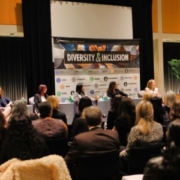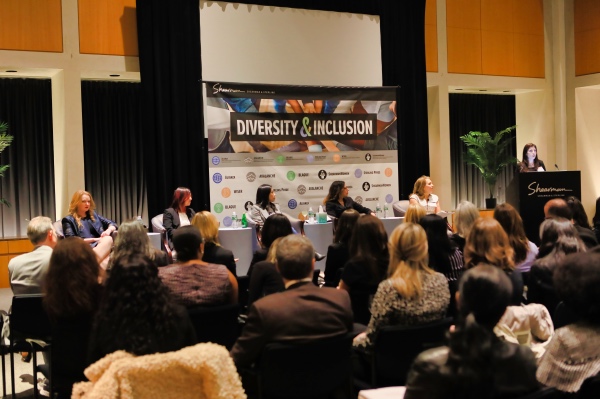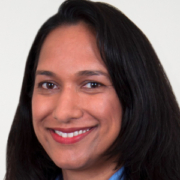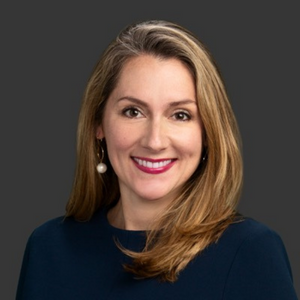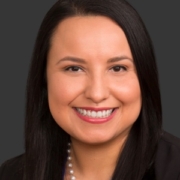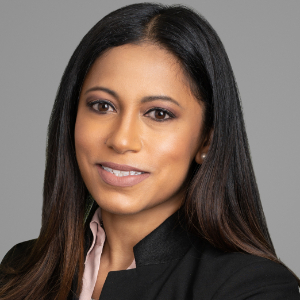Shearman & Sterling’s Fintech Foundry and Women’s Inclusion Network Host “Leaders in Blockchain” Panel
Shearman & Sterling LLP’s women’s inclusion network, known as WISER, and the firm’s FinTech Foundry, recently joined forces with The Collective Future, a global collective of leaders in blockchain and cryptocurrency, to host a panel discussion in New York City on recent developments in blockchain technology, including its wide-ranging impact and its evolving legal and regulatory landscape.
Donna Parisi, Partner and Co-Head of Financial Services and FinTech at Shearman & Sterling, moderated the panel. Rupa Briggs and Mary Pennisi, co-chairs of WISER and members of the FinTech Foundry, planned and opened the panel with welcoming remarks. Joining them were a panel of female experts on blockchain and law, including Emma Channing, CEO and General Counsel of Satis Group; Wendy Callaghan, Chief Innovation Legal Officer and Associate General Counsel at AIG; Joyce Lai, Law and Technology Officer at ConsenSys; and Cathy Yoon, General Counsel of Genesis Block and GB Capital Markets. Joshua Ashley Klayman, Chair of Wall Street Blockchain Alliance’s Legal Working group and CEO and Founder of Klayman LLC and Inflection Point Blockchain Advisors, offered opening remarks and creatively introduced the concept of blockchain technology with a visualization exercise.
The panel demonstrated that women are making strides in becoming experts in this emerging field, and highlighted the speakers’ expertise through a lively discussion about recent regulatory developments in blockchain, use cases in various industries, privacy issues, smart contracts, and challenges ahead in developing the law applicable to this evolving technology.
In the U.S. especially, the legal and regulatory frameworks surrounding initial coin offerings, for instance, are not being established quickly enough, creating uncertainty that leads many entrepreneurs to seek other countries in which to do business. This is a topic that is echoed by the industry as a whole. In late September, executives from the cryptocurrency industry, financial institutions and venture capital firms met in Washington, D.C. for a discussion with Ohio Representative Warren Davidson, who plans to introduce a bill that will aim to update regulations surrounding cryptocurrency offerings.
Another challenge to the growth of blockchain and cryptocurrency is the European Union’s General Data Protection Regulation (GDPR). According to the panelists, it is still unclear how exactly the data privacy provisions of GDPR will impact how personal data is distributed on public blockchains in particular. The panelists noted that there is still no set definition of “erasure of data,” an important part of GDPR’s “right to be forgotten.” Without clear definitions, blockchain companies will face difficulty in maintaining compliance with GDPR.
Despite the challenges, the panelists were confident that there is ample room for growth for blockchain and cryptocurrency on a global scale. They recognized blockchain as offering new seats at the table and also discussed why blockchain appeals to women and led them to assume leadership roles in the space.
Ms. Parisi offered the theory that women are attracted to the field because they are not satisfied with the status quo and are driven to innovate. All agreed that diversity is an important objective and ingredient for success in technology in the future. Two of the panelists recalled meeting and learning from each other through a diversity mentorship program.
With events such as this one and the incredible examples set by the accomplished panelists, there is hope that more women will be motivated to take leadership positions in the blockchain and cryptocurrency industry, and become recognized for their expertise.
This article is part of Theglasshammer.com’s annual women in technology celebration and we are recognizing women in technology with coverage from Oct 22nd to Nov. 22nd. Enjoy profiles and related articles!

